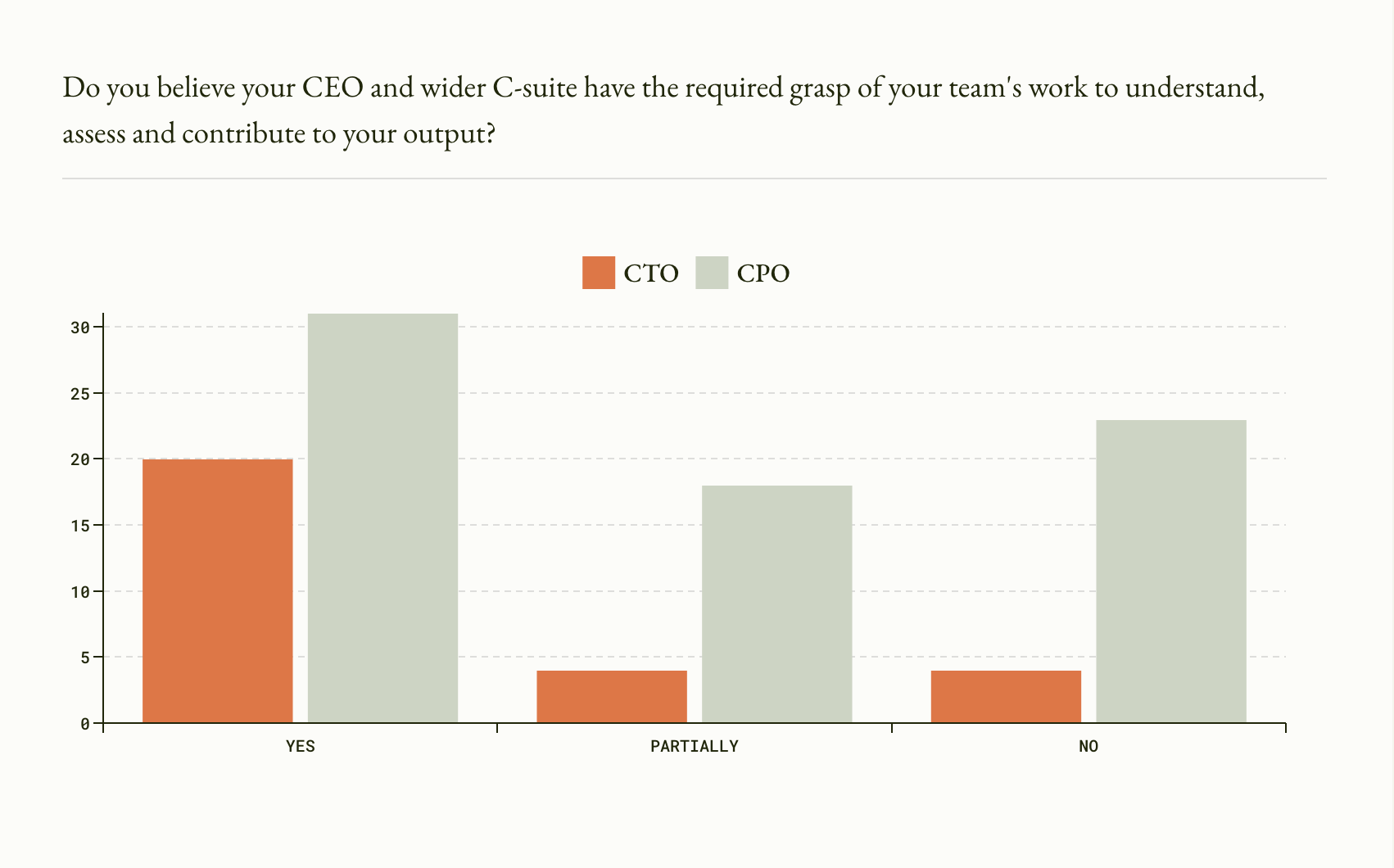Empowered teams are made up of self-sufficient groups of people working together towards specific goals. They have the authority, experience, responsibility and skills to act on their own decisions for their organisation. From time to time, however, there will be things that you, as product leader, need to tell them to do.
What do you do about a “must-do” initiative when your team is empowered? When do you tell empowered teams they have to do something, and how do you handle it well?
External and internal initiatives
We can put such must-do initiatives into two categories, external and internal. The external ones are easier to handle. They often involve regulation — for example in the run-up to the introduction of GDPR legislation, businesses across Europe had to discard initiatives they had on the go in order to ensure they were compliant in time. With such external must-do initiatives, as Mind the Product’s managing director Emily Tate comments, “it’s easy to explain why it’s blowing up your roadmap, everyone can understand that these are things that need to be done”.
An internal edict is less easy to explain and for an empowered team to understand. As product leader you should be sure that you don’t let the senior management team burden Product with a must-do initiative unless there’s a really strong reason for it. “The CEO says ‘we have to do this’ shouldn’t be the default position,” says Emily. “You can’t cave in to everything.” It might also be that the sales team insists on a feature because they think they will lose a client if it’s not developed. Emily says it’s up to the product leader to work with sales and the executive team to set the expectations that the strategy and roadmap won’t be shifted every time a big customer or senior executive thinks it should be.
When it doesn't go the way you hoped
That said, there are always some must-do initiatives that get through, and managing them doesn’t always go the way you want. Gavin Wade, VP of Product at workplace mental health platform Unmind, says that recently the company found it was about to lose a bid for business with a globally recognised entertainment brand. The entertainment business had told Unmind it preferred its product but would be choosing another provider because it had multilingual capabilities. It was too big an opportunity for Unmind to lose.
Gavin says: “We’ve got users in 115 countries. Being global has always been part of the vision, it's always been part of our strategy to internationalise our product and be multilingual. But it was about finding the right time to do that, because we knew it would be a massive overhaul for our products, and have an impact on almost every product team.”
Gavin had joined Unmind only a few months previously, and had found the product teams weren’t working in an empowered way. He had worked hard to change that, introducing roadmaps and OKRs for example, so the edict that the product would be internationalised and that teams would have to drop their current work and focus on internationalising the product was badly received. The product teams who had just started to feel that they were empowered thought that this was being taken away from them.
Gavin says: “Hindsight is a wonderful thing, but we should have done a better job of explaining that going global was on our roadmap — we didn't know when, but the trigger would be a big enough client. We should have been extremely clear about that.”
Unmind had to spend a lot of time and resources in order to persuade the product teams that internationalising the product was the right thing to do. Says Gavin: “We’re a small enough company that we were able to identify those individuals who felt most strongly about it and then spend time talking to them, letting them air their views and also acknowledging our mistake. It was a leadership mistake and being transparent and open about that helped them to appreciate that while the messaging wasn't the best it could have been, the reason why was correct.”

Similarly, Emily cites a time when she worked at Sabre Airline Solutions when one of the company’s large customers wanted her app translated into nine languages as part of a deal, and was offering a considerable incentive for this work to be done. She says: “We had other things planned, and the app wasn’t tooled to be translated. It was something we had always wanted to do, but had never risen to the top of the list.”
Emily sold this initiative to her team by reasoning that while they had to do it, it was good for the product, and would be enabling a global deal that was worth millions to the business. “The biggest thing was to tell the story of what it enabled,” she says, “that it showed how valued we were to our clients.”
Clear communication is vital
Communication and the culture that underpins it are everything in the management of must-do initiatives. Shanea Leven is Founder and CEO at CodeSee, a development platform that helps development teams visually to understand how their code works. CodeSee is a two-year old startup, with about a dozen very experienced people working for it, because, as Shanea says, “we’re trying to innovate”. “When you hire a bunch of leaders in their own right and then try to explain to them that they must do something It really comes down to culture. We’ve built our culture based on five key principles – humility, self reflection, transparency, trust and communication.”
While these principles may not typically be in play in a startup, doing something difficult and making hard decisions is much easier if they are well-established, Shanea says. “We've all had careers, so we’ve had a lot of practice with the patience, the transparency, the how to deliver messages, and the thoughtfulness that’s needed when delivering hard communication.”
These past experiences paid dividends when CodeSee made a minor pivot. “We have two products, one of which is a real technological leap,” says Shanea. “We put a lot of effort into building it. It’s a great product but technology in general isn’t yet there to support the idea. We needed to put it on pause, approach the problem from a different angle and bring the two products together.” Shanea and her co-founder walked the team through the data, their decision, and the process they went through to decide they were going to put the product on pause for a while. “We brought everybody along on that decision,” she says, “it wasn’t just one or two conversations.”
Shanea says Crucial Conversations is a book that everyone should read to help them manage must-do initiatives. “It’s one of the methodologies that we base our culture on.” She believes that you need to be vulnerable as a leader, to make it safe for others to speak their truth. “If we can all align and be empathetic to one another, then it makes those conversations around must-do initiatives easier.”
Our leaders' advice in brief
Here then is a summary of the advice from our product leaders on managing those must-do initiatives:
Be transparent and vulnerable
Shanea advises you should be really transparent about why things are the way they are. “Often leaders don't really trust people to be adults about a problem. They fall back on corporate speak which makes people believe that they’re not trusted.”
Be clear about triggers on the roadmap
If there are initiatives that you will execute only under certain circumstances, be clear up front about them. This was the mistake that Unmind made, says Gavin Wade: “Being clear up front means that everyone's on the same page when the trigger happens.”
Be explicit about where you need alignment
There will always be parts of a strategy that require everyone to be aligned and pull in the same direction, so you should be clear about what they are. Says Gavin: “Be clear what parts of the strategy are unique or individual to teams and what parts will require a collective effort.”
Don’t be a pushover
Don’t let the CEO or other stakeholders blow up your roadmap without a fight. Make sure they understand that strategy and roadmaps won’t be shifted on a whim. Says Emily: “Be clear that initiatives need to be measured, thought through and validated and they need to fit within the normal roadmap cycle.”
Show your bets
Show why your must-do initiative is good for the product. If you decided it wasn’t a battle worth fighting, tell your team this and show them why.
Don’t fall into a cycle of negativity
It’s fine as a leader to tell your team you lost a battle, says Emily, but you need to stay positive.
Don’t pretend you believe in a bad decision that’s been handed to you
The key to maintaining authority with your team is to be transparent, says Emily. If you pretend you believe in a bad decision your team will see through it and stop trusting you.
Further resources
- Keeping your Stakeholder Relationships in CREDiT – Julia Whitney (mindtheproduct.com, 2017)
- Crucial Conversations: Tools for Talking When Stakes Are High – Kerry Patterson, Joseph Grenny et al
- Stuck in the Middle: Mastering Stakeholder Management by Emily Tate – Emily Tate (mindtheproduct.com, 2020)







